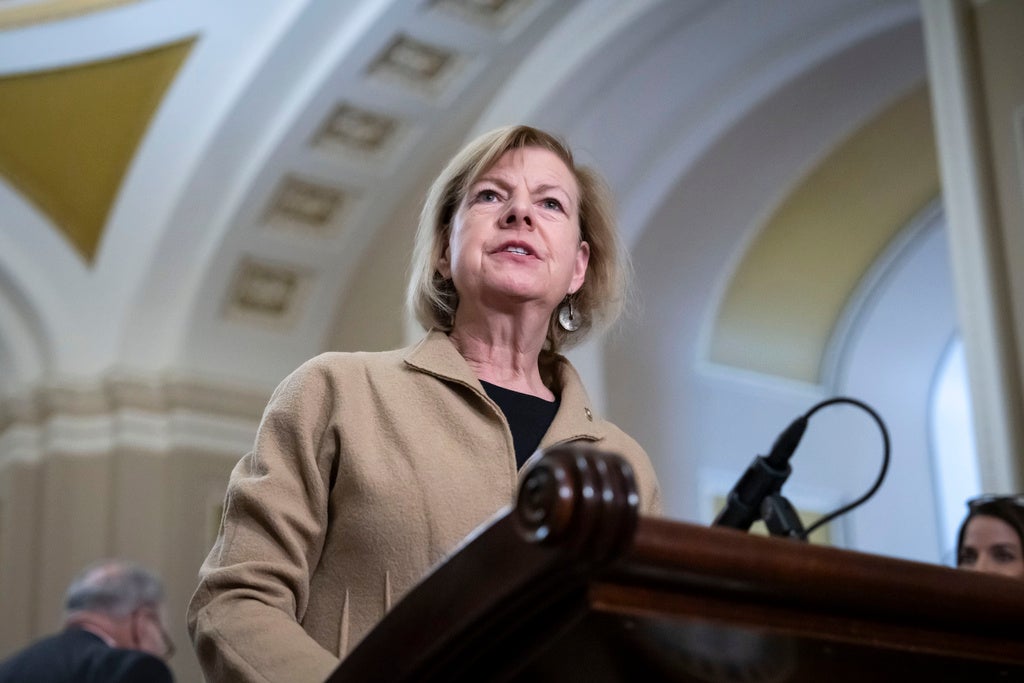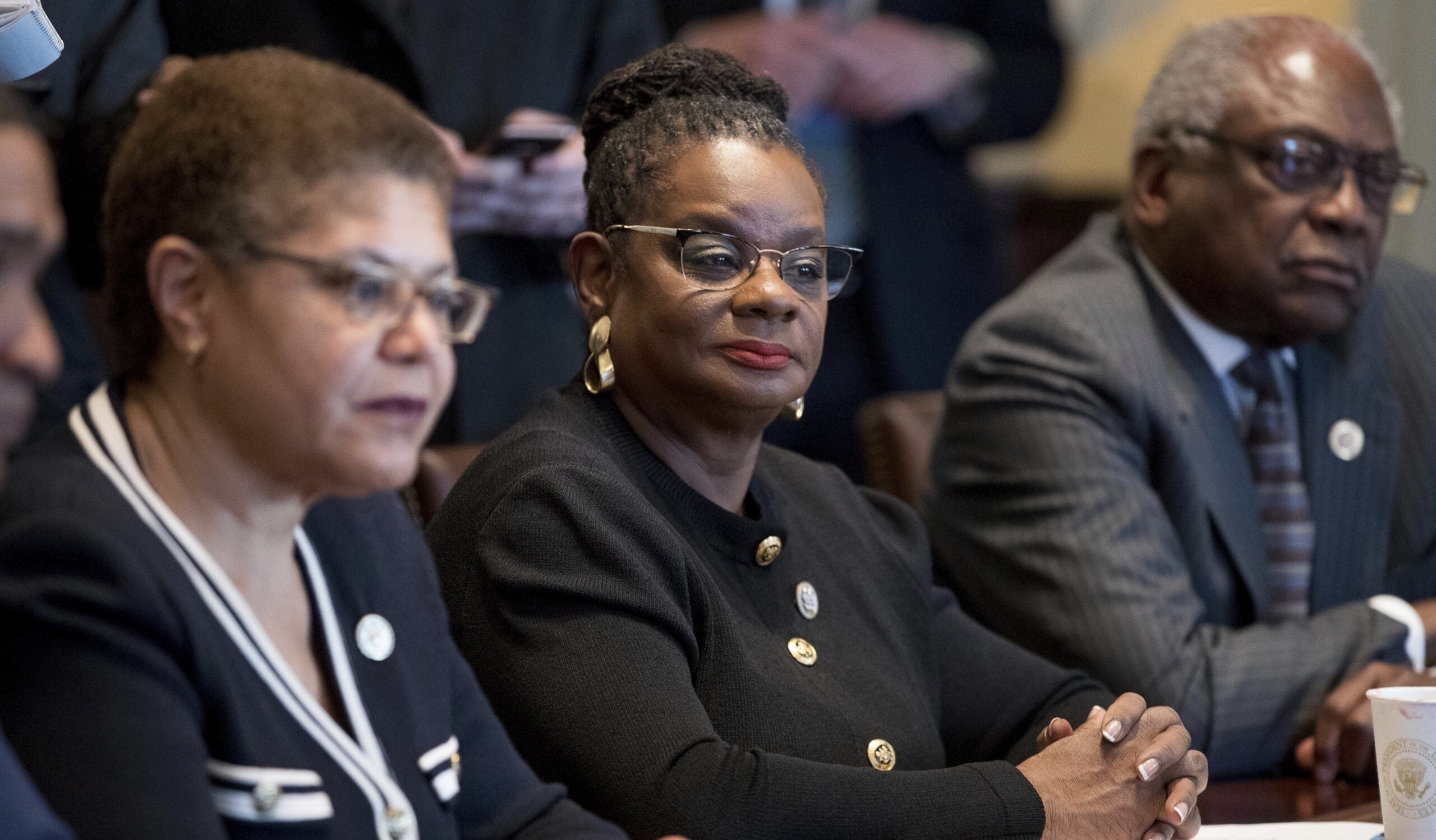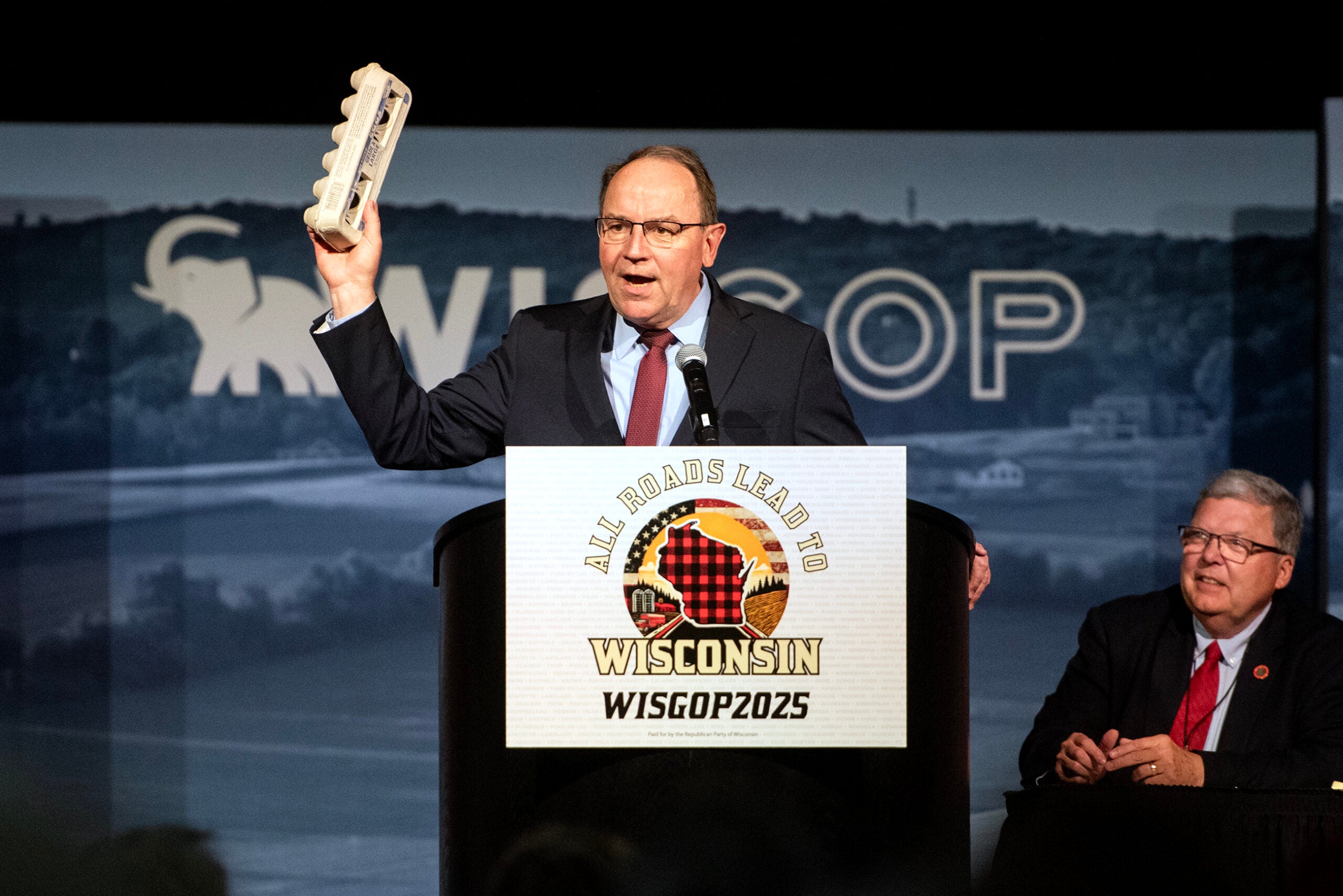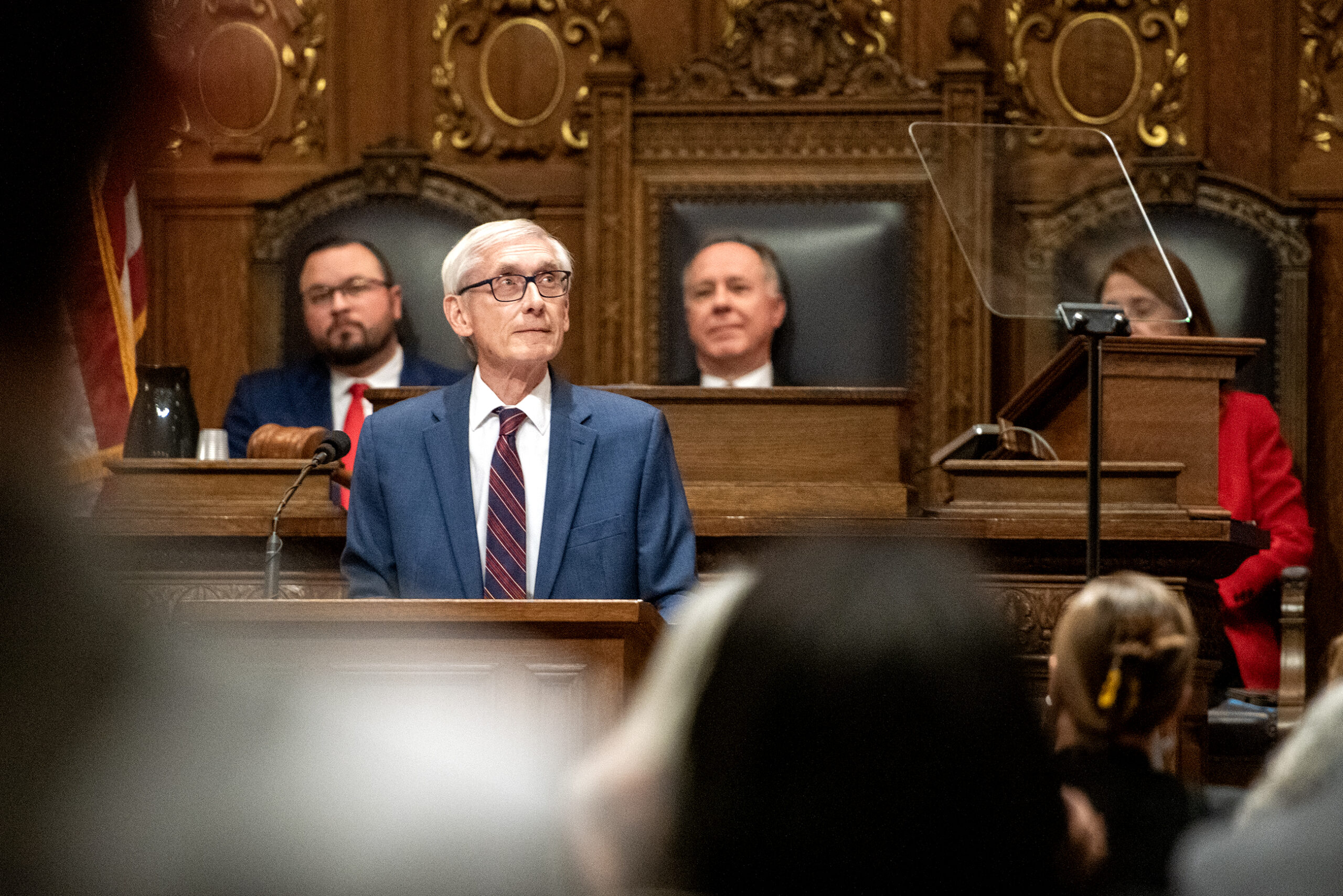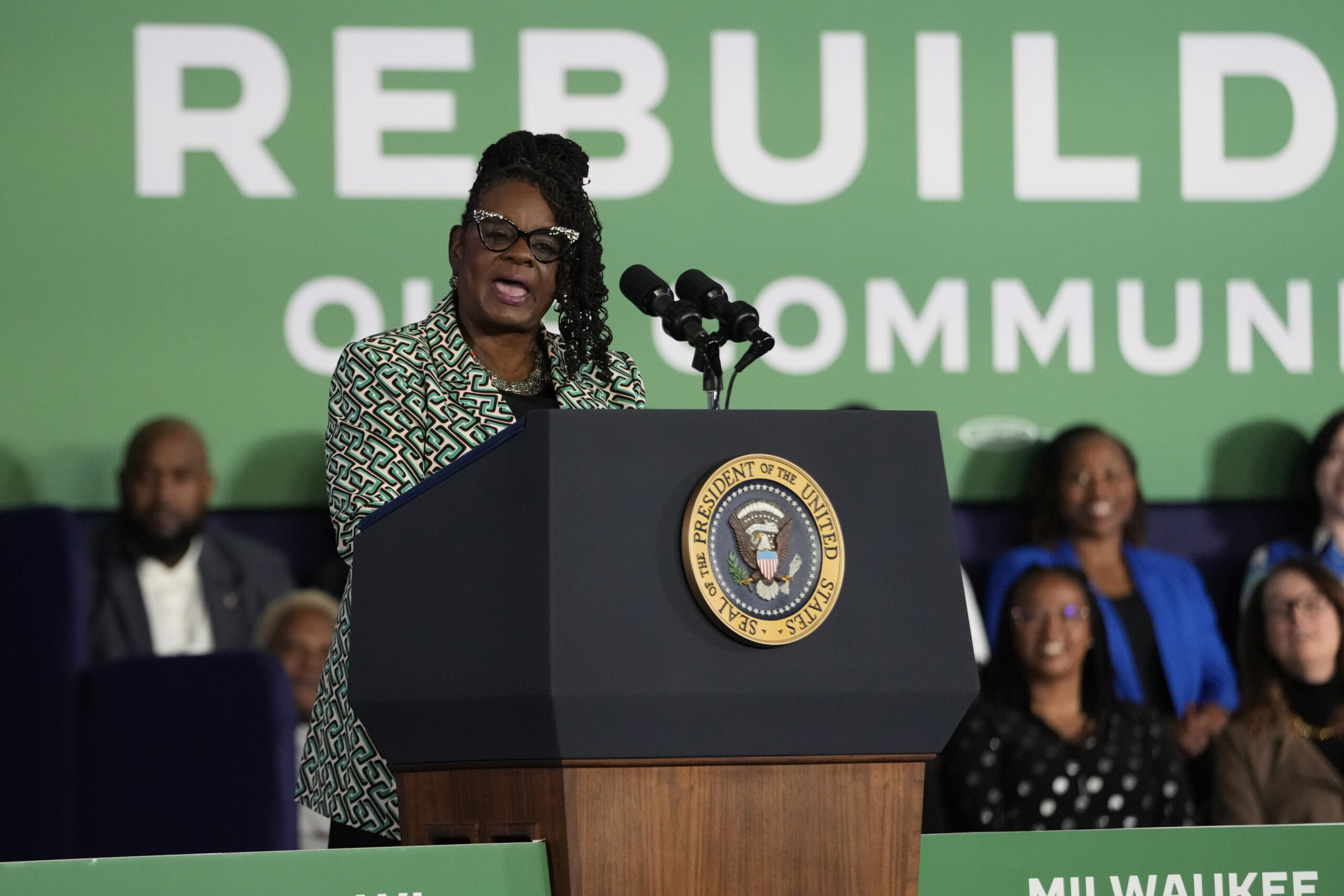In 2018, Republican Tim Rogers challenged Democratic U.S. Rep. Gwen Moore for her seat in Congress, winning about 22 percent of the vote. He ran against her again in 2020 and 2022, receiving similar margins each time.
On Nov. 5, voters will again choose whether Moore or Rogers will represent them in Congress for the 4th Congressional District, a seat that is urban, diverse and heavily Democratic.
The district, which centers on the city of Milwaukee, is about 58 percent non-white, and includes dense suburbs like Wauwatosa and north shore communities like Whitefish Bay and River Hills.
News with a little more humanity
WPR’s “Wisconsin Today” newsletter keeps you connected to the state you love without feeling overwhelmed. No paywall. No agenda. No corporate filter.
Here’s a look at the candidates.
Gwen Moore
Moore was first elected to Congress in 2004 and has handily won reelection every two years since. She’s a member of the House Ways and Means Committee, which writes legislation about taxes and social services like Medicare.
In an interview with WPR, she highlighted her experiences and priorities on the influential committee.
She said her reelection bid is motivated by the issue that “propelled me into this work in the first place — and that is really to get some sort of equity and parity for women and children.”
Pointing to her past work on the child tax credit, Moore said she wants to lower taxes on middle-class people and ramp up IRS enforcement of tax evasion by high earners.
She said she wants to continue that work “no matter who is the president.”
“I want to be there for the fight,” Moore said. “And the fight will basically be over whether or not we extend the Trump tax cuts and add another $5 trillion to the deficit so that we can enrich Elon Musk and Jeff Bezos and all of his friends.”
Moore said she supports Vice President Kamala Harris’ proposals for larger child tax credits and for Medicare coverage of in-home elder care.
She also mentioned her 2018 advocacy for stricter lead pipe replacement policies and called insulin costs “price gouging.”
Moore said she could see Republicans making small gains with Black male voters because of Trump’s focus on “expanding his base of supporters among men.”
“That’s effective in terms of point-shaving, given how close this is, but the narrative that all these Black men are going to vote for Donald Trump is hyperbole, it’s bulls—, if I can say that,” Moore said, chuckling.
“I do think that the large majority of Black men who actually vote will vote for Kamala,” she added.
Despite her district’s strong Democratic lean, Moore emphasized her bipartisan record.
“To the extent that the Republicans will allow me, I’ve been able to work across the aisle.”
This summer, Moore co-sponsored a pending bill with Missouri Republican Jason Smith that would redefine “neglect” in child welfare cases. In a joint statement, Moore and Smith said the legislation would help welfare agencies support families going through a financial crisis, rather than taking their children away.
Moore served 16 years in the state Legislature before her congressional career began. After all that, she says she’s still driven.
“I still got the fire in my belly,” Moore said of her campaign.
Tim Rogers
When Rogers first ran for Congress in 2018, he said dealing with Milwaukee’s lead water pipes were his “biggest thing.” Rogers described the issue in personal terms, dating back to the house where he grew up.
“The freeway was being built, and you could see lead chips coming through your faucet,” he said in an interview with WPR.
His interest in politics started in those days, before his family had to leave their house at 9th Ave. and Reservoir St. in Milwaukee due to urban renewal.
“This was a community that showed concern!” he said. “Even though we were faced with the challenges, we survived it, and getting into government is the only way you can change things to make them better.”
While the 4th District leans to the left, Rogers’ views are decidedly Republican on a variety of issues. When it comes to education, he credits his private elementary school with shaping his support for the school choice program today. He supports gun rights and gun education, saying it “would cut down on crime if kids knew the power behind a gun.” Rogers also opposes abortions past the early stages of pregnancy.
“When my kids were in the belly, you could see the features of the face and everything,” Rogers said. “And for that to come out as a human being? That’s a beautiful thing.”
When asked if there was anything he could change about Milwaukee, he said he envisioned a program where homeless people are paid wages to clean parks, and dilapidated houses are rehabbed by local workers.
“The Democratic policies aren’t doing it. Republicans give you the freedom to open up your imagination and do the things that need to be done,” Rogers said.
He resents Democrats for putting Black voters “in a category” and getting them “ganged up” against supposedly racist Republicans.
“Democrat, Republican, or independent — we’re all American! We need good government,” he said is his answer to those Black voters voters who are skeptical of his party affiliation. He said it resonates with them.
Rogers delivers fruit baskets for a local company for work.
“Just meeting people and seeing the joy you bring to their door, it’s awesome. It’s like campaigning,” Rogers said, calling it a “beautiful experience.”
As for his chances, Rogers said “my numbers are going up” and that people he talks to “like somebody who’s passionate about our country and the people in it.”
Wisconsin Public Radio, © Copyright 2025, Board of Regents of the University of Wisconsin System and Wisconsin Educational Communications Board.



